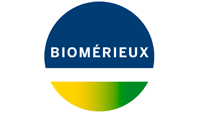Three Clinical Studies of bioTheranostics Molecular Breast Cancer Diagnostics Presented at San Antonio Breast Cancer Symposium
14 December, 2008Independent studies validate the utility of Theros BCISM for improving risk stratification of early stage breast cancer patients.
bioTheranostics, a bioMérieux company that discovers, develops and commercializes new molecular diagnostic tests in oncology, reported today findings from three studies using the company’s molecular breast cancer assay to predict risk of disease recurrence in individual patients. Data from the studies were presented this week at the San Antonio Breast Cancer Symposium (SABCS).
The Theros Breast Cancer IndexSM (BCI) is a combination of Theros H/ISM (HOXB13:IL17BR) and Theros MGISM (Molecular Grade Index), two molecular biomarkers that refine and improve risk stratification in patients with estrogen receptor (ER)-positive, lymph node-negative breast cancer.
Data presented at the San Antonio meeting this week provide further evidence that the Theros BCI is a valuable tool for helping oncology medical professionals and patients make information-based decisions regarding breast cancer therapy.
On Thursday, Dennis Sgroi, MD, presented results from a study comparing breast cancer risk recurrence stratification by Oncotype DX versus Theros Breast Cancer Index. Dr. Sgroi and colleagues at Massachusetts General Hospital (MGH) Cancer Center and the Brigham and Womens Hospital, along with colleagues at Indiana University and University of Alabama at Birmingham, looked at tumor samples from 166 estrogen-receptor positive patients for which an Oncotype DX Recurrence Score (RS) of high, intermediate or low was previously reported. The study found that using the combined H/I-MGI biomarkers (Theros BCI) to assess risk recurrence resulted in a smaller intermediate risk group than OncoType Dx (18 percent versus 47 percent, respectively) by re-stratifying a large number of patients with an intermediate Oncotype DX recurrence score into low and high risk groups.
“We know the best way to treat early stage breast cancer patients whose risk recurrence is ‘low’ or ‘high’,” said Dr. Sgroi. “The ability to reduce the number of patients in the ‘intermediate’ group by reclassifying them as either ‘high’ or ‘low’ risk, making risk prediction more specific, should go a long way in helping medical professionals select the most appropriate therapy for each of their patients.”
On Saturday, Matthew Goetz, M.D, from Mayo Clinic and colleagues from Austria presented data examining the predictive utility of CYP2D6 and the prognostic utility of the Theros Breast Cancer Index in women with breast cancer randomized to receive five years of treatment with tamoxifen or two years of tamoxifen followed by three years anastrozole treatment. The researchers found that the Theros Breast Cancer Index will identify, among patients with early stage breast cancer, those with a higher risk of treatment failure when treated only with hormonal therapy. They concluded that the Theros Breast Cancer Index identified approximately 25 percent of grade 1 and grade 2 breast cancers that had a nearly three-fold higher risk for a subsequent recurrence in distant organs.
Finally, data from a study presented on Sunday by Olle Stal, PhD, and colleagues from Linkoping University in Sweden explored the value of the HOXB13 gene in predicting benefit of tamoxifen therapy. Researchers reviewed HOXB13 protein expression in tumor samples from 866 patients with estrogen-receptor positive tumors. Patients whose tumors expressed no or low levels of HOXB13 had a clear benefit from tamoxifen in terms of longer distant recurrence-free survival. Patients with a high or intermediate HOXB13 expression did not experience a distant recurrence-free survival benefit from tamoxifen as compared to untreated patients.
“Data from these studies reinforce clinical and research experience to date which has shown that the Theros Breast Cancer Index is an excellent test for assessing breast cancer risk prognosis and provides valuable information to physicians treating patients, particularly the most common group of ER-positive, node-negative patients,” said Richard Ding, chief executive officer of bioTheranostics. “As suggested by one of the studies presented this week, our test offers additional risk assessment over the leading competitor by providing a more informative picture of the intermediate risk group. We look forward to further expanding and validating this test with both additional research and real-world clinical experience.”
About bioTheranostics
Advancing Molecular Diagnostics in Oncology
bioTheranostics discovers, develops and commercializes molecular diagnostic tests for cancer patients. Leveraging its unique expertise in cancer molecular profiling and proprietary algorithms, bioTheranostics provides innovative tests to the oncology community that drive personalized treatment. The company operates a CLIA-certified, CAP-accredited diagnostic service laboratory in San Diego, CA to perform its proprietary molecular diagnostic tests: the Theros Breast Cancer IndexSM, a combination of Theros H/ISM (HOXB13 :IL17BR) and Theros MGISM (Molecular Grade Index) that refines and improves risk stratification in patients with estrogen receptor (ER)-positive, lymph-node negative breast cancer; and the Theros CancerTYPE IDâ cancer classification assay, which provides improved cancer classification, particularly for patients diagnosed with metastatic cancer where the origin is uncertain or unknown. For more information call 1-858-587-5870 or visit www.bioTheranostics.com.
bioTheranostics Contacts
David Dai
Tel: 1 858 587 5894
david.dai@biotheranostics.com
Michele Parisi
Tel : 1 925 864 5028
mparisi@biocommnetwork.com
About bioMérieux
Advancing Diagnostics to Improve Public Health
A world leader in the field of in vitro diagnostics for 45 years, bioMérieux is present in more than 150 countries through 39 subsidiaries and a large network of distributors. In 2007, revenues reached €1.063 billion with 84% of sales outside of France.
bioMérieux provides diagnostic solutions (reagents, instruments, software) which determine the source of disease and contamination to improve patient health and ensure consumer safety. Its products are used for diagnosing infectious diseases and providing high medical value results for cardiovascular emergencies and cancer screening and monitoring. They are also used for detecting microorganisms in agri-food, pharmaceutical and cosmetic products. bioMérieux is listed on the NYSE Euronext Paris market (Code: BIM – Code ISIN: FR0010096479). Other information can be found at www.biomerieux.com.
bioMérieux Contact
Koren Wolman-Tardy
Tel: + 011 33 6 13 94 51 14
media@eu.biomerieux.com

